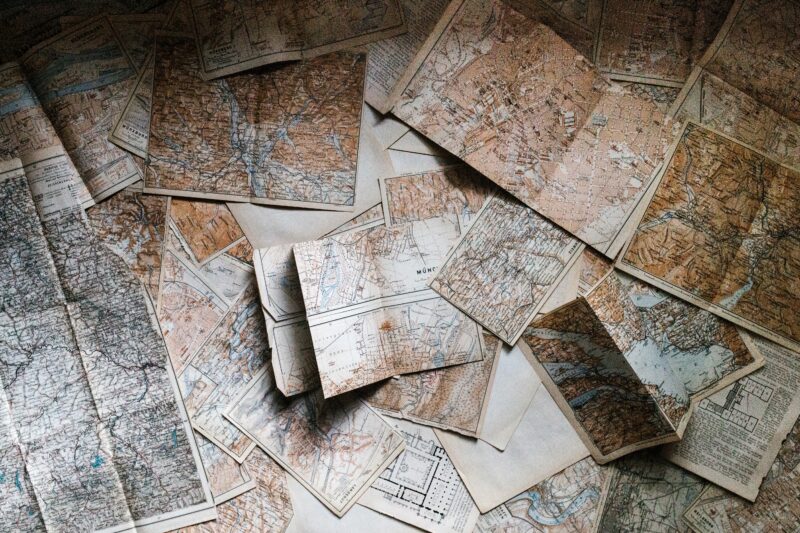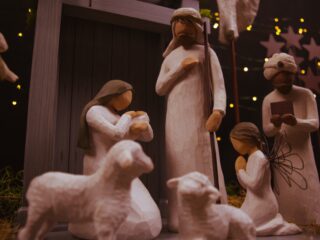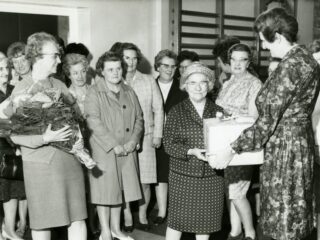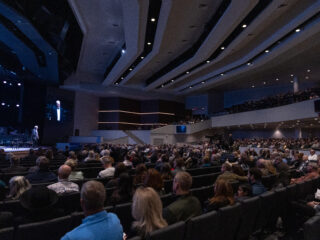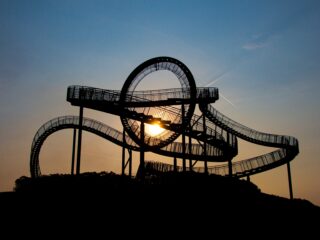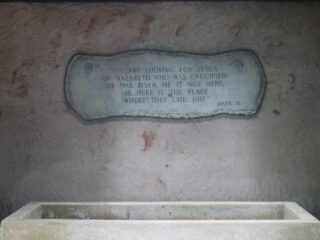The other day, I was flipping through some old maps of Nashville and the surrounding area of Middle Tennessee. One of the great things about living in this area is the history of this place. These maps told the geographical story of that history. Some of the maps outlined the territories of the Native American tribes that used to call this valley home. Cherokees mostly lived around here, but also a lot of Choctaws and Creeks.
There were diagrams of Fort Nashborough along the banks of the Cumberland River. There were a lot of maps of the Civil War. Nashville was a strategic supply line moving the Southern armies from west to east. A lot of supplies and reinforcements from Louisiana and Texas passed through Nashville on their way to join Robert E. Lee in the eastern theatre. Two major Civil War battles were fought here — the Battle of Nashville and the Battle of Franklin.
I had a strange sensation leafing through all of these maps. I got a deeper understanding of all the layers of time and history my life is now built on. Generations of people were born and died, living their lives and making decisions that resulted in the life I’m living right now. I am doing what I do because they did what they did.
I get the same feeling of familiar nostalgia reading passages from the Old Testament. I recognize the layout of the land. It’s different, but you can still find the major landmarks. Love and laughter, struggle and loss, victory and family — all of the major themes that make human life what it is.
The other day I started reading through Second Isaiah. Most scholars recognize that the book of Isaiah (as we have it in our current Bibles) was written in two distinct situations and probably by different authors. In Isaiah 1-39, the enemy in Assyria and Israel was still in Jerusalem. In 40-66, the Hebrews were in exile and the main enemy was Babylon.
Reading the passages about how disconnected everyone in the Babylonian exile felt was deeply moving to me. I felt like I was sitting at a family reunion where all of the old stories are being told. When one of the old uncles would say, “If you think that was something, you should have been with us in Babylon.”
And if we had been with them in exile, what would we have learned? What could a preacher to exiles teach us who are stumbling through a pandemic?
First, the prophet would tell us to acknowledge where we are. For a long time, the Israelites couldn’t believe they were in exile. There had to be some kind of mistake. How could God do this to them? How could God do this to Jerusalem? To His own Temple? How could they live in Babylon? Without their worship? Without their city?
The prophet would tell them you are where you are. Now, figure it out.
How will you worship if you can’t get to the Temple? Figure it out.
God is still God and is still worthy of worship. Figure it out.
If you can’t get to the Temple, put together a synagogue. If you can’t offer a sacrifice, find God in the Torah. We still need to worship. Figure it out.
During the pandemic, we were not able to gather in our sanctuaries and only sporadically in our groups. We learned to attend virtual worship services and became familiar with Zoom meetings. We’ve argued about the COVID-19 statistics and what it means to gather safely. We’ve debated whether or not watching a video service is really going to church.
We are where we are. Figure it out.
The second thing the prophet would tell us is there are lessons to be learned in exile that can’t be learned anywhere else. What’s more, God won’t bring you out of exile until these lessons have been learned. There is no social promotion in the kingdom of heaven. You stay until you’ve learned your lessons.
And what’s the lesson that needs to be learned? The idols we worship can get us into exile, but they can’t get us out. Only God is God. The church in America has trusted too many idols — nationalism for one — and now, we realize we’re in an exile only God can save us from. This is always the lesson, isn’t it? Only God is God and there is no God like Him. When the church in North America learns that lesson, we can come home from exile.
Next, the prophet would remind us God is still at work. Babylon isn’t in control of world events. God is. God is working out His purposes and whether he knows it or not, even the Babylonian king serves the divine purposes of God.
During recent events, I’ve been deeply troubled by the lack of mature Christian thinking — or any Christian thinking — among those who claim to know Christ. The hatred and character attacks written on social media as Christians attacked fellow Christians has been embarrassing. I’ve reminded our church on more than one occasion that Jesus reads your social media. The future of the church isn’t in the election of this party or that party. The future of the church is Christ, and in Him, everything’s coming together.
Lastly, the prophet would remind us because God is faithful to us all the time, we should be faithful to Him in the meantime. Yes, there’s always a gap, a space of time, between the giving of the promise and the keeping of the promise– but the promise will be kept. Because we’re sure of this, we will live with an obedient hope preparing for the time when God’s plan will be revealed for all to see.
The prophet’s faithfulness in Second Isaiah helps us find our bearings in a very confusing world. I pray the generations that follow us will be able to find their way using the old maps we’ve left them.

